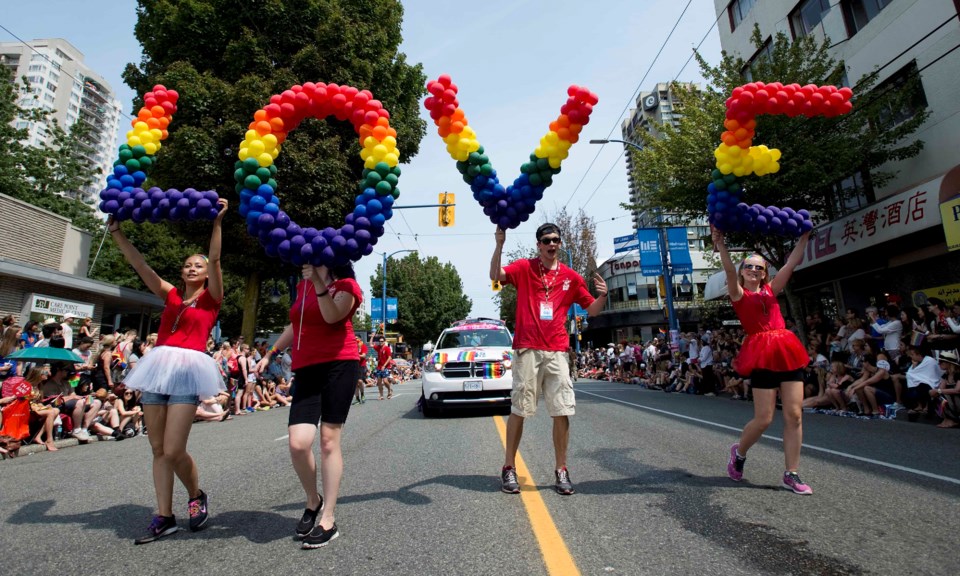Last Wednesday, when the news broke that the Vancouver Pride Society had decided to ban uniformed police officers from the 2018 Pride Parade, it appeared, from VPS executive director Andrea Arnot’s comments to media, that the LGBTQ+ non-profit had informed the Vancouver Police Department of its decision before the information became public.
However, the VPD released a statement on Friday, Dec. 1, saying it had learned about the ban on uniformed officers through a news article. In the statement, the VPD also said it had “no input into the final decision.”
Meanwhile, later that same day, the Vancouver Pride Society issued a clarification statement saying it had met with members of the Vancouver Police Department on Sept. 21 to inform them that only plain-clothes officers would be allowed to participate in the 2018 Pride Parade, and that uniformed officers would not be permitted.
In a followup interview Monday with Westender, Arnot reiterated that she and two other VPS members had met with three representatives from the VPD, including LGBT liaison officer Dale Quiring and Superintendent Marcie Flamand. Arnot said the society was told that the VPD representatives would relay the news to the rest of the force.
“We're guessing that it's an internal communications issue,” Arnot said, about the contradictory statements, “because we met with them [the VPD] on Sept. 21, which was the same week our board made the decision, and there were three of us from Vancouver Pride at that meeting, and three police officers that we had worked with. And at the same time, our other board co-chair had let someone know in the mayor's office.”
Arnot expressed disappointment that VPS had potentially been cast as careless and uncommunicative through the VPD’s official response.
“It feels a bit tough, we had had a good working relationship with them [the VPD], and I assume we still do, and you know we involved them in this process since summer of 2016, through all our community consultations. We met with them to share the results on the consultations, and to present where the information was coming from and, in particular, which groups of people were feeling like the uniform was an issue for them to participate, so we feel like we've involved them in this process.”
Sgt. Jason Robillard, VPD’s media liaison officer, says he was unaware of the meeting that VPS refers to and that he only spoke briefly to Quiring, the LGBT liaison officer who VPS claims was aware of the ban, before releasing the Dec. 1 statement. Reached by phone, Robillard confirmed that he was personally unaware of the ban until the information broke publicly last week, but wasn’t willing to speak about the two organizations' differing statements at any length.
In the Dec. 1 statement, VPD said it had taken steps to try to repair its relationships with the LGBTQ+ community and recognized that it still had more work to do.
“We recognize that our work is still not done and we will continue with our listening and outreach efforts to build on our existing trust and relationships with Vancouver’s LGBTQ2+ community,” the press release read.
In the wake of the announcement, one Westender reader called for the Vancouver Pride Society to be defunded and several others expressed disappointment with the decision, with a number of readers threatening to not attend the parade. When asked what she thought about those who are upset with the decision, Arnot called for empathy.
“I really feel like it comes down to basic empathy,” she said. “When marriage equality happened a lot of people in the community thought, ‘Yay our work is done,’ and then we had folks from the trans community wave their hands and say, ‘Hey, what about us? We don't have the same protections and status under the law,’ and it took until this past year for that to change in Canada and B.C., so I wish people would access that place of empathy and remember what it feels like to be left out of something or bullied or discriminated against or ‘othered’ in some way. And maybe most people think that they have a good relationship with police and feel safe with them, but there are still some people who don't…”



